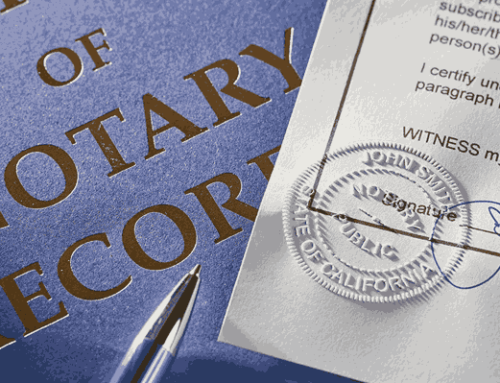Ever wondered how technology is reshaping the practice of law, an arena known for its venerable traditions and meticulous procedures? In a world where innovation touches every facet of our lives, it’s no surprise that the legal industry, too, is experiencing a transformation. E-discovery solutions, a significant part of legal tech, were estimated to be a multi-billion-dollar industry. The global e-discovery market size was projected to reach $17.32 billion by 2023, growing at a compound annual growth rate (CAGR) of around 10% from 2018.
This transformation is encapsulated by the burgeoning field known as “legal tech,” a fusion of legal expertise and cutting-edge technology. Legal tech isn’t just a buzzword; it’s a revolutionary force set to transform the legal industry.
However, with these remarkable advancements come ethical and regulatory challenges that warrant thoughtful consideration.
As we delve into the future of legal tech, we’ll uncover its transformative potential and consider its implications. It’s not just a tool; it’s a catalyst for change, challenging us to rethink and reimagine the legal industry.
Key Technologies Shaping the Legal Industry
The legal industry, historically known for its conservative approach, is experiencing a remarkable transformation driven by technology. These technological advancements are not only changing the way legal professionals operate but are also enhancing accessibility to legal services. Here are some of the key technologies shaping the legal industry:
Artificial Intelligence (AI) and Machine Learning
- Legal Research: AI-powered platforms, like ROSS, use natural language processing (NLP) and machine learning. This analyzes vast legal databases and provides attorneys with relevant case law, statutes, and legal precedents. It does the work more quickly and accurately than traditional research methods.
- Predictive Analytics: Machine learning algorithms examine historical case data to predict legal outcomes. This helps lawyers to assess the strength of their cases and make informed decisions.
- Document Analysis: AI-driven software, such as Kira and Relativity, can review and extract critical information from documents, contracts, and emails. It automates the time-consuming process of document review and due diligence.
Blockchain Technology
- Smart Contracts: Blockchain technology, popularized by platforms like Ethereum, enables the creation and execution of smart contracts. These self-executing contracts automatically enforce and verify the terms of agreements, reducing the need for intermediaries and minimizing disputes.
- Document Verification: Blockchain’s immutable ledger ensures the authenticity and integrity of legal documents, making it virtually impossible to alter or tamper with critical records. This enhances trust in legal documentation.
Cloud Computing and Data Security
- Remote Work and Collaboration: Cloud-based solutions like Microsoft 365 and Google Workspace allow legal professionals to work seamlessly from anywhere with an internet connection. Real-time collaboration features improve teamwork and streamline document sharing.
- Data Security: Ensuring the confidentiality and security of sensitive legal information is paramount. Advanced encryption, multi-factor authentication, and data access controls are essential components of cloud-based security measures.
E-Discovery and Document Management
- Electronic Discovery: E-discovery platforms such as RelativityOne and Everlaw automate the identification, collection, and analysis of electronic documents during litigation. This reduces manual labor, minimizes errors, and lowers costs associated with discovery.
- Document Management Systems: Cloud-based document management systems like NetDocuments and iManage simplify document organization, storage, and retrieval for law firms, increasing overall efficiency.
Virtual Law Firms and Online Legal Services
- Virtual Law Firms: Some law firms have adopted a virtual model, allowing attorneys to work remotely, access shared resources, and serve clients online. This model minimizes overhead costs associated with physical offices and offers greater flexibility.
- Online Legal Services: LegalZoom and similar platforms make legal services more affordable and accessible for individuals and small businesses.
Practice Management and Client Engagement Tools
- Client Portals: Integrated secure client portals facilitate clients’ secure access to case information, communication with attorneys, and document uploads.
- Practice Management Software: Tools like CaseFox and MatterSuite help law firms manage cases, calendars, billing, and client relationships more efficiently, reducing administrative burdens.
Data Analytics and Business Intelligence
- Performance Metrics: Analytics solutions offer law firms insights into key performance indicators (KPIs), allowing them to assess the effectiveness of their strategies, allocate resources wisely, and optimize their operations.
- Client Insights: Analyzing client data helps firms identify trends, anticipate client needs, and tailor their services to enhance client satisfaction and loyalty.
These technologies collectively redefine legal practice, increasing productivity, accessibility, and the quality of legal services. To remain competitive and provide exceptional value to clients, legal professionals must keep pace with evolving legal tech innovations.
Applications of Legal Tech
Legal tech has found applications across various facets of the legal industry, streamlining processes, reducing costs, and improving the delivery of legal services. Here are some detailed applications of legal tech:

E-Discovery and Document Management
- E-Discovery Tools: Legal tech platforms, such as Relativity, employ advanced algorithms to process, review, and categorize vast volumes of electronic documents, reducing the time and costs associated with discovery in litigation.
- Predictive Coding: Machine learning models use historical case data to predict relevant documents for a specific case, improving review efficiency and accuracy.
- Document Review Automation: AI solutions like Kira and ROSS can pinpoint clauses, provisions, or data in contracts and legal documents, greatly speeding up due diligence and contract analysis.
Virtual Law Firms and Online Legal Services
- Virtual Law Firms: Some virtual law firms operate entirely online, utilizing cloud-based communication and collaboration tools to serve clients remotely. This model reduces overhead costs, increases flexibility for attorneys, and extends their reach to a broader client base.
- Online Legal Platforms: Provide individuals and small businesses with a range of legal documents, legal advice, and automated legal processes. These platforms are accessible 24/7, making legal services more affordable and convenient.
Practice Management and Client Engagement Tools
- Client Portals: Secure online client portals provide clients with case updates, secure document uploads, and direct attorney communication, promoting transparency and client engagement.
- Practice Management Software: Tools like CaseFox and MatterSuite encompass a suite of features for managing cases, schedules, billing, and client relationships. Automation of administrative tasks reduces administrative burdens, enabling attorneys to focus on legal work.
Artificial Intelligence in Legal Research and Analytics
- Legal Research Assistance: AI-driven platforms, employ natural language processing (NLP) to enhance legal research. They offer advanced search capabilities and can summarize complex legal documents.
- Predictive Analytics: Machine learning models analyze historical case data to predict litigation outcomes, settlement probabilities, and even potential legal strategies. These insights assist attorneys in making data-driven decisions.
Blockchain for Smart Contracts and Document Verification
- Smart Contracts: Blockchain technology, exemplified by Ethereum, allows for the creation of smart contracts with self-executing code. These contracts automatically enforce and verify the terms of agreements, minimizing the need for intermediaries.
- Document Verification: Blockchain’s immutable ledger ensures the authenticity and integrity of legal documents. This can be crucial in scenarios requiring document verification, such as real estate transactions or intellectual property rights.
Data Security and Privacy Compliance
- Data Encryption: Legal tech solutions employ robust data encryption methods to safeguard sensitive client data, communications, and documents from unauthorized access.
- Compliance Tools: Legal tech assists law firms in adhering to data protection regulations like GDPR and HIPAA. They offer tools for data retention policies, access controls, and audit trails, ensuring compliance and mitigating legal risks.
Litigation and Case Management
- Case Management Software: Tools like TrialWorks and CaseFox centralize case information, deadlines, and court appearances. They facilitate collaboration among legal teams, ensuring seamless coordination and organization.
- Courtroom Technology: Legal tech encompasses courtroom presentation software and digital evidence management. A tool that enhances the presentation of cases during trials, increasing the effectiveness of legal arguments.
Legal Marketing and Client Acquisition
- Marketing Automation: Legal tech can automate marketing efforts, from social media management to email marketing campaigns. Enabling law firms to efficiently reach and engage with potential clients.
- Client Relationship Management (CRM): CRM software helps law firms manage interactions with clients, track leads, and nurture client relationships. It aids in client retention and ensures personalized service delivery.

The Future of Legal Tech
The future of legal technology, or legal tech, holds exciting promise as it continues to reshape the legal industry. Advanced artificial intelligence (AI) will revolutionize legal research, providing deeper insights and predictive analytics to guide legal strategy.
Natural language processing (NLP) will power conversational AI and language translation, making legal services more accessible and efficient. Automation will streamline legal processes, from complex contract creation to robotic process automation (RPA) of administrative tasks. Legal tech will also play a pivotal role in regulatory compliance, emphasizing ethical AI practices.





